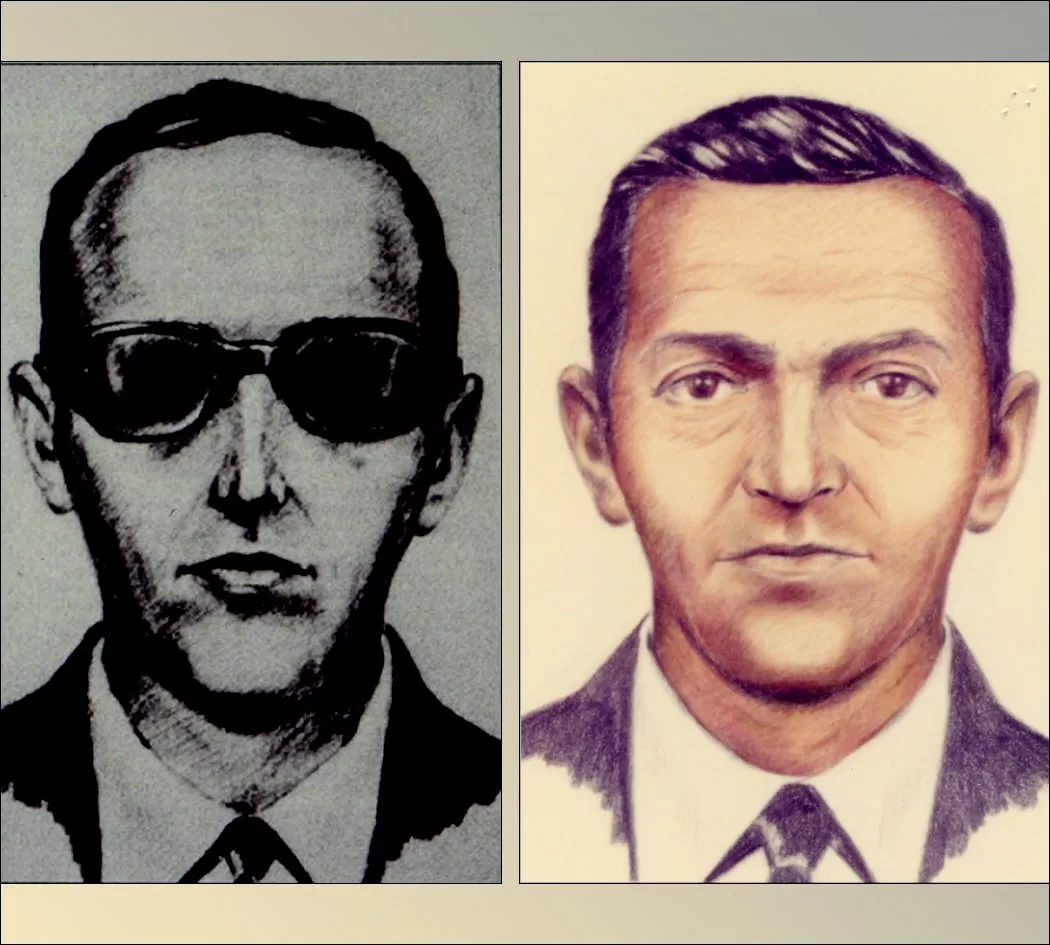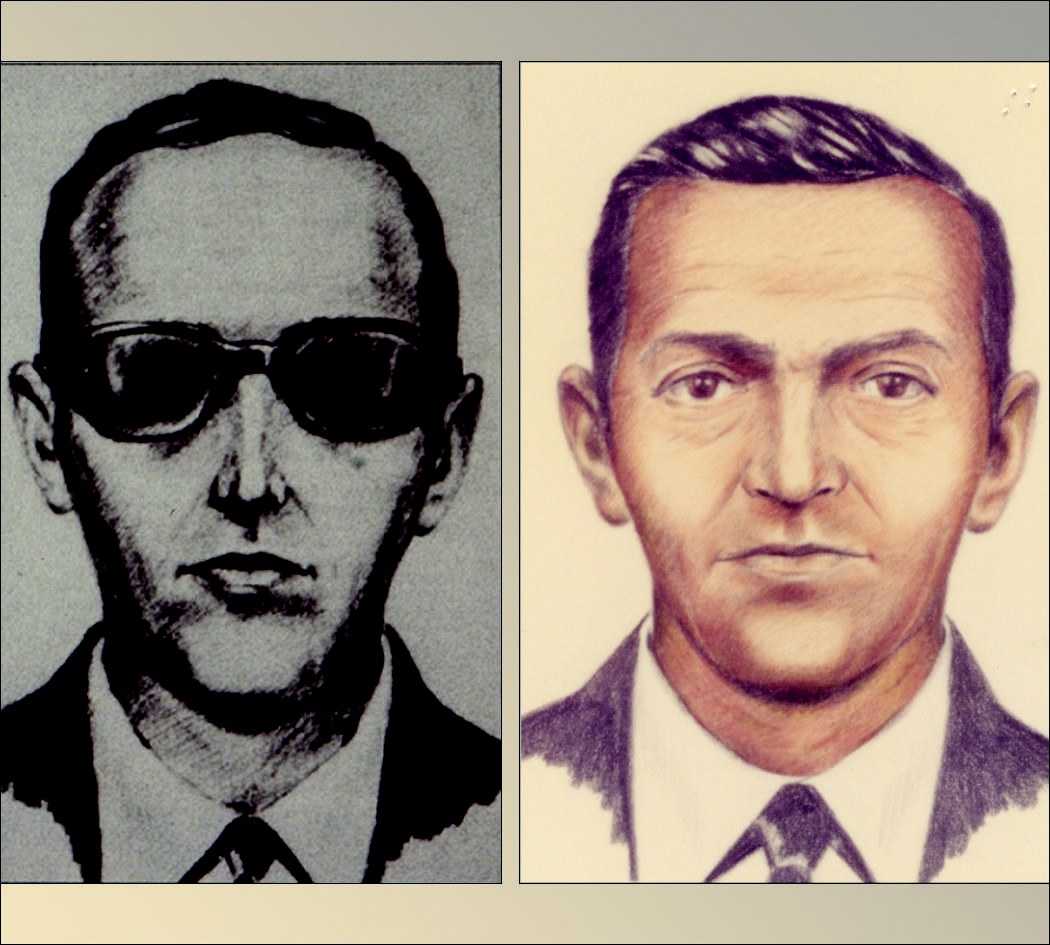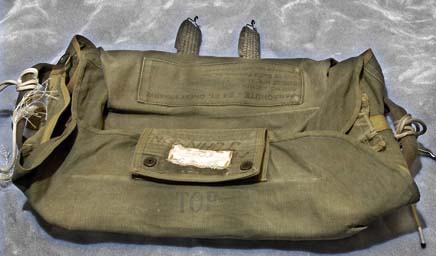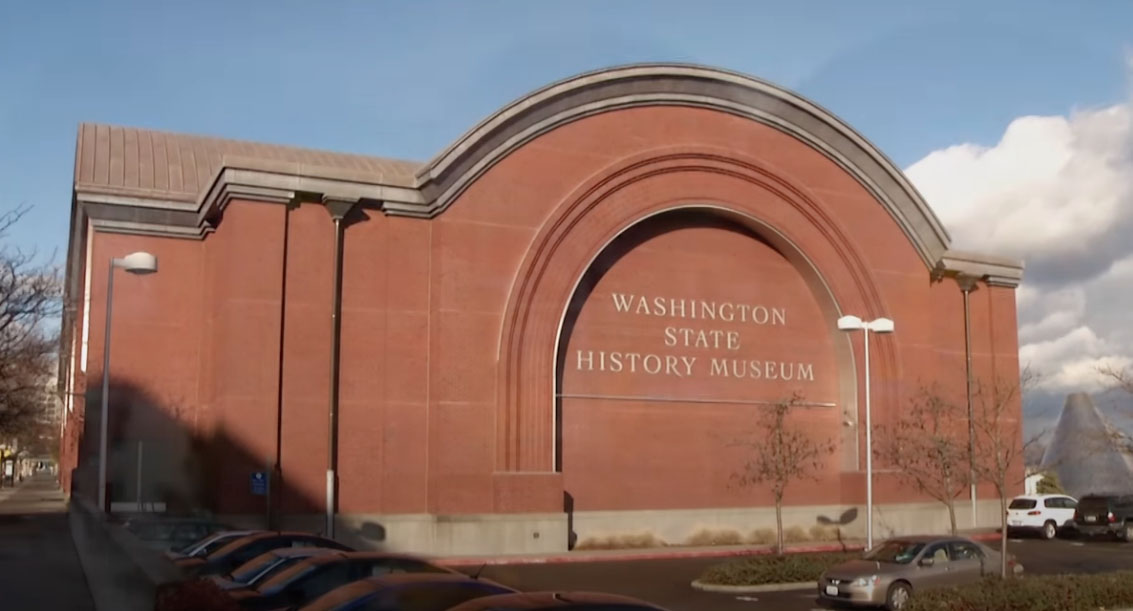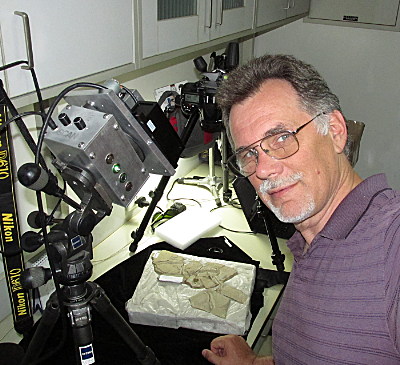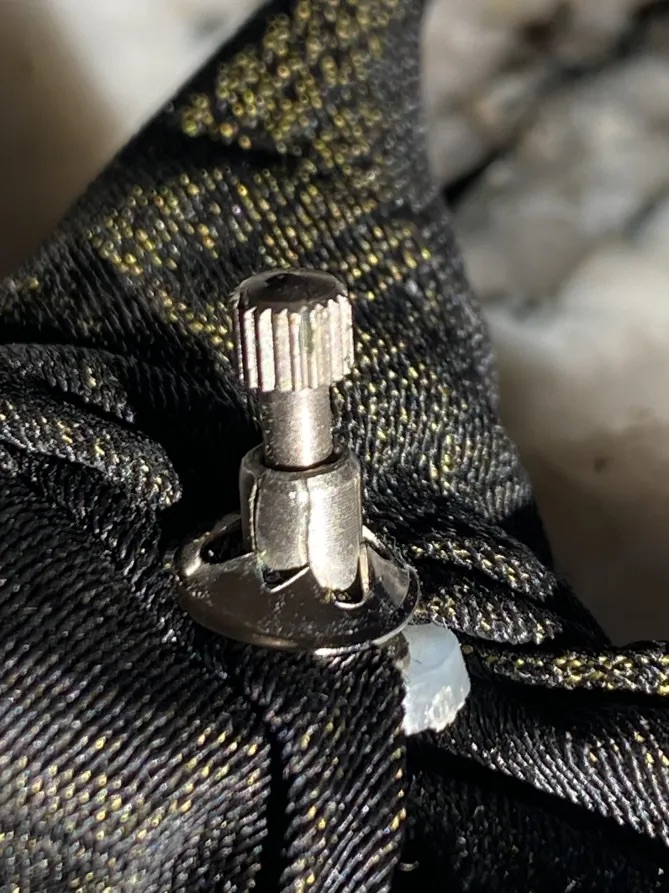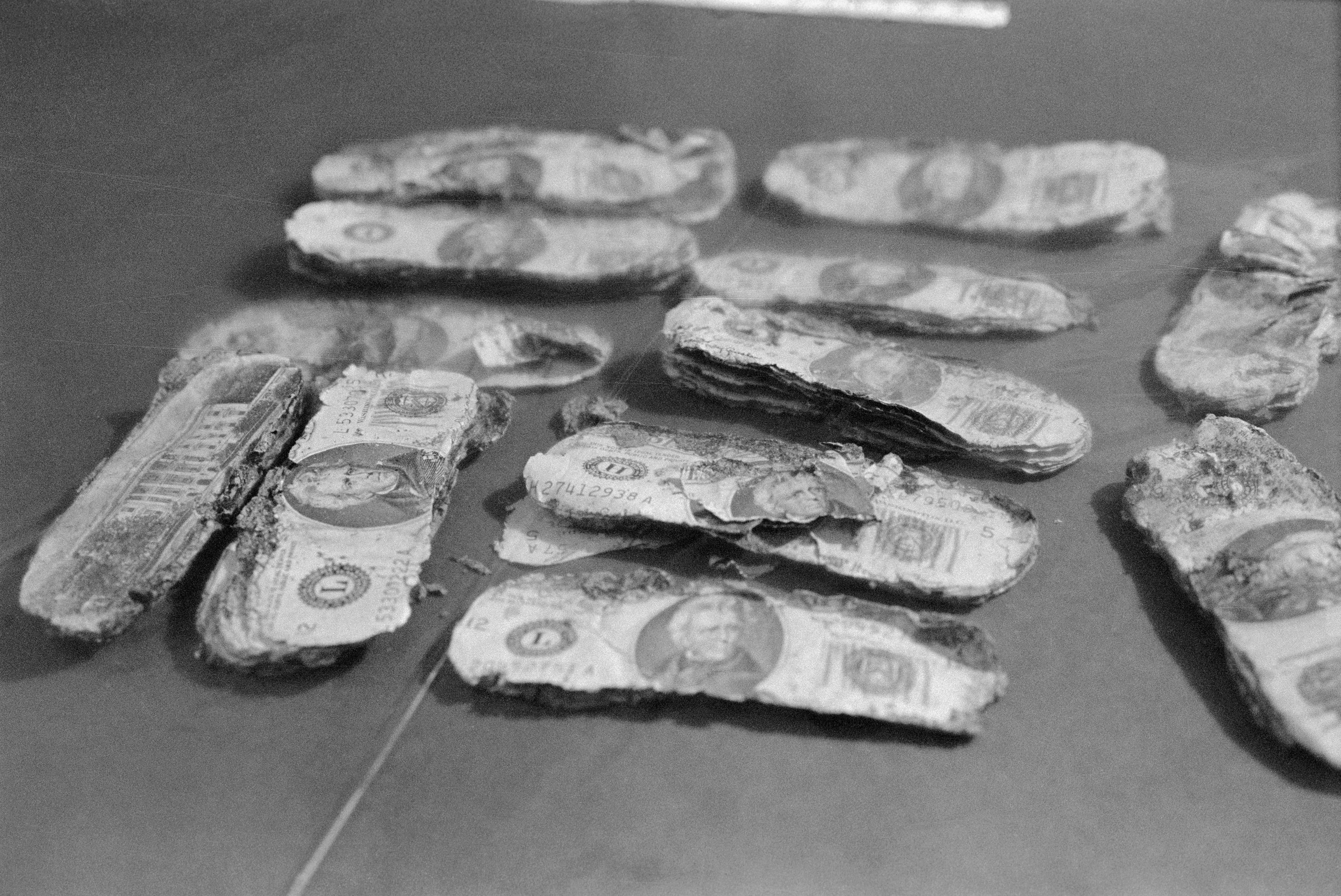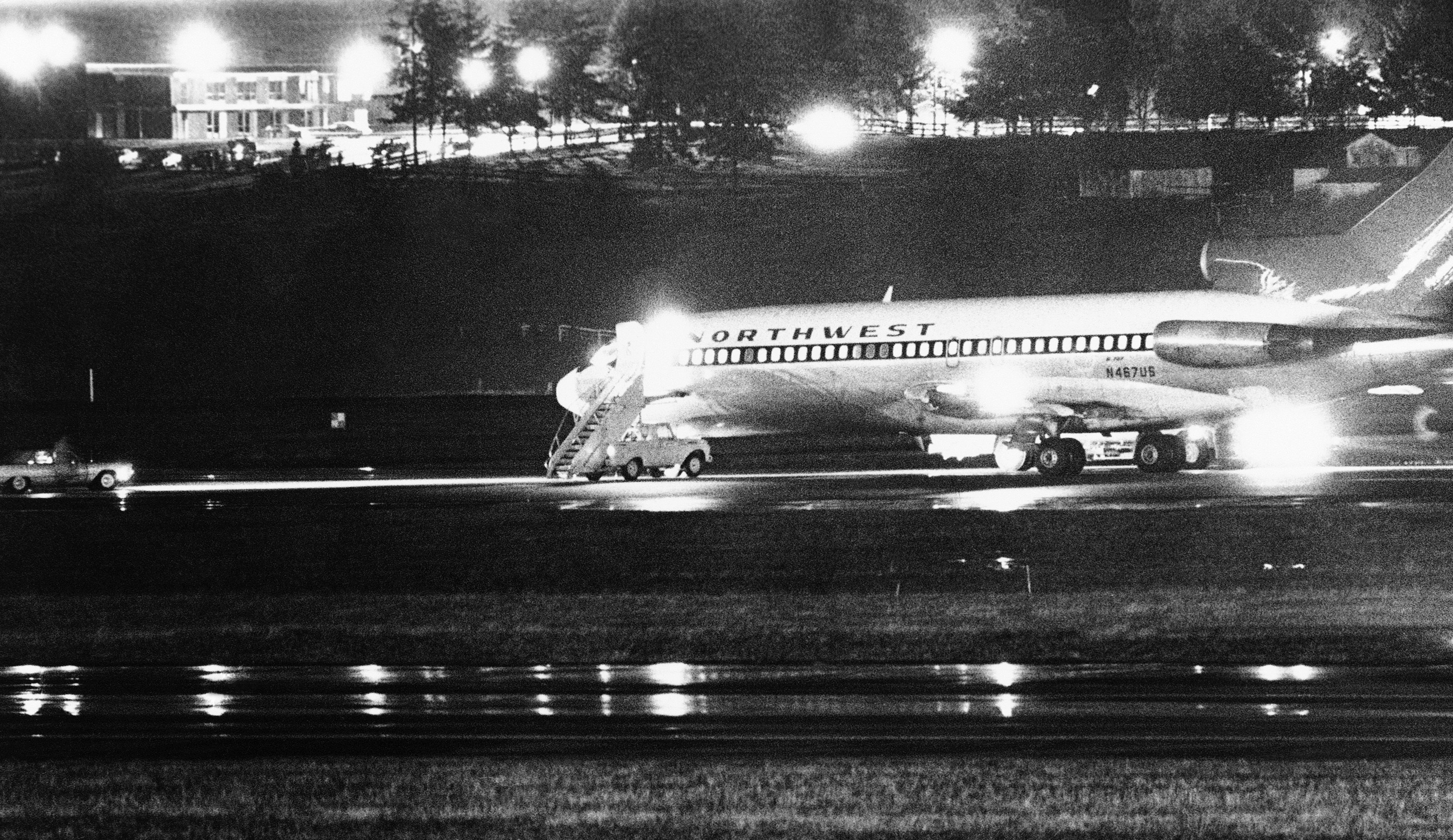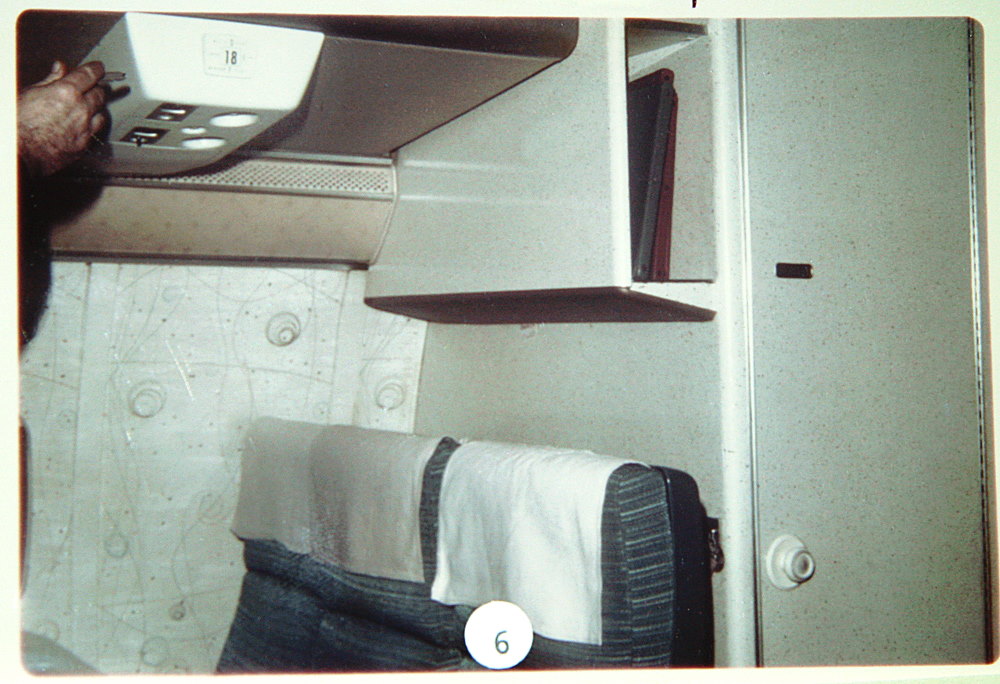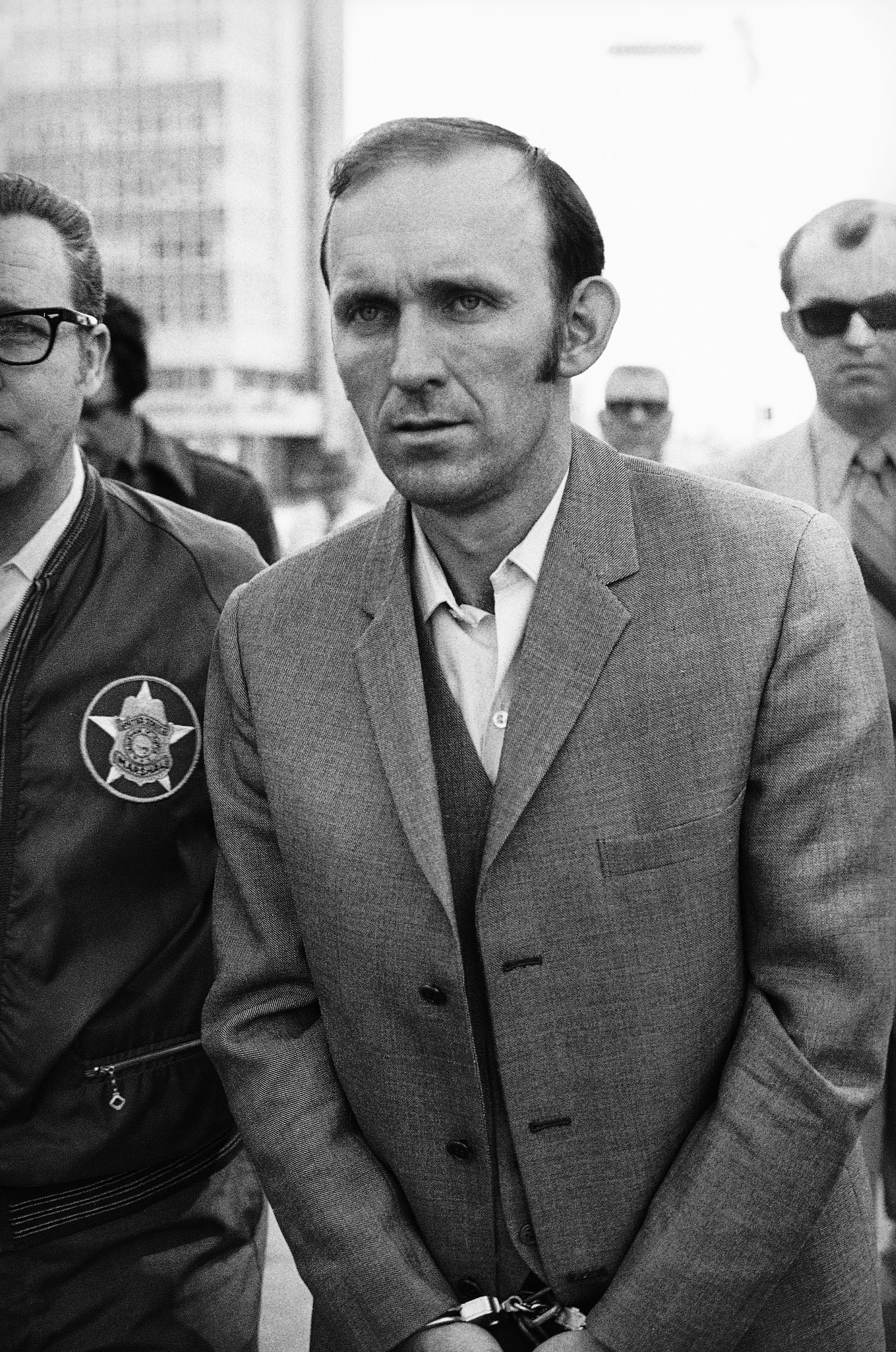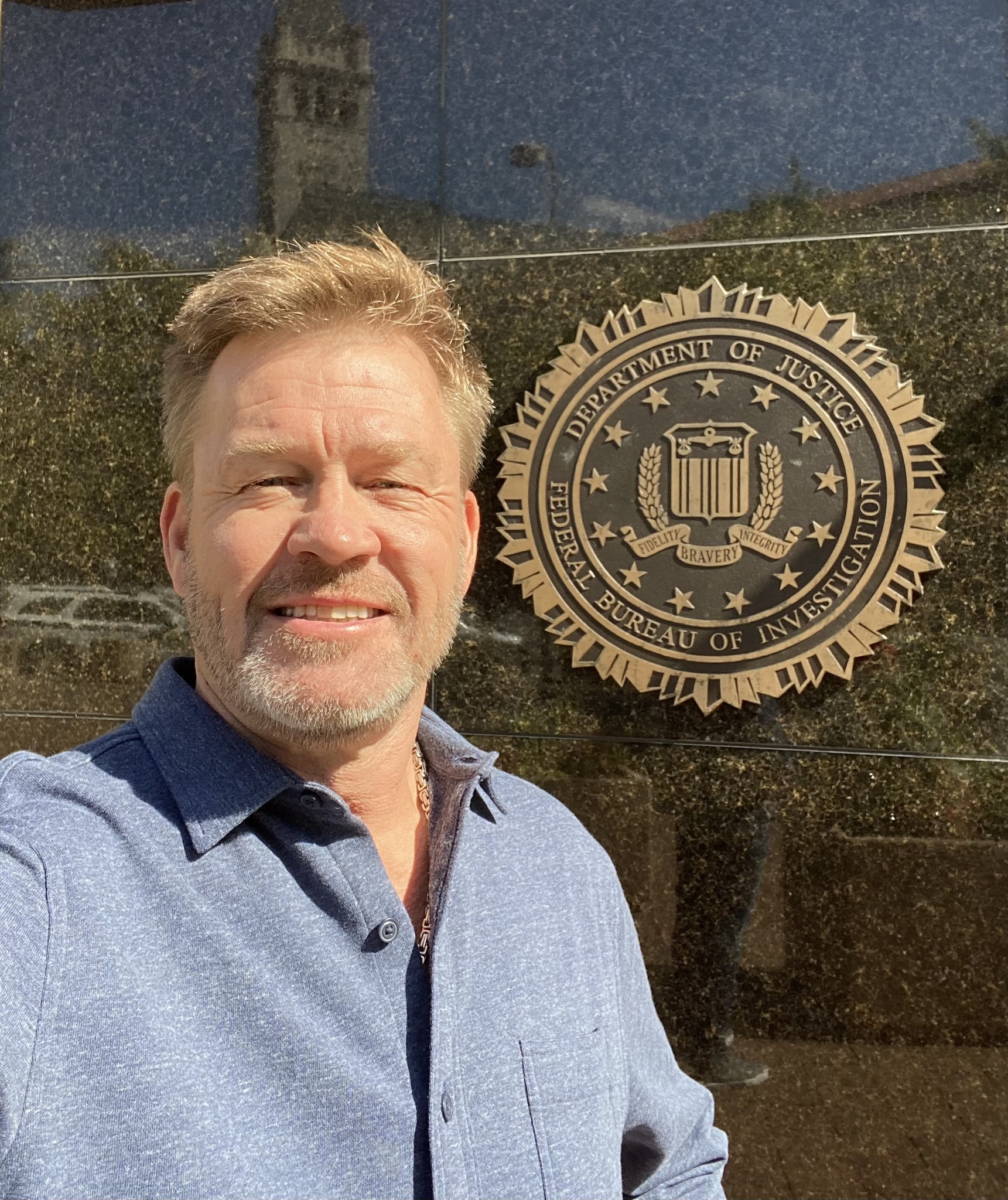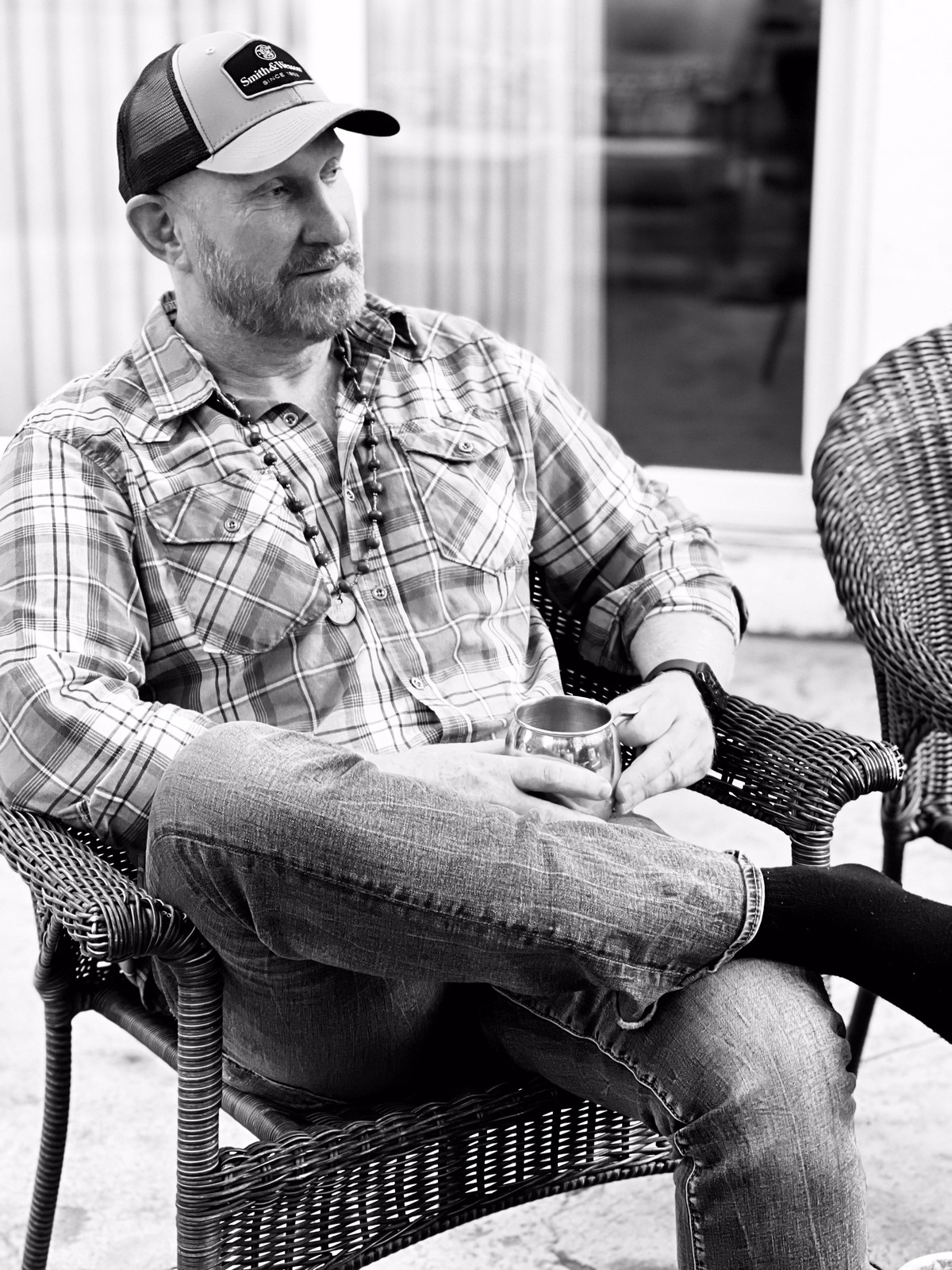Tom Kaye, a paleontologist by trade, had been scheduled to conduct tests last fall on one of the two parachutes left behind by Cooper aboard the hijacked Northwest Orient Flight 305.
The parachute is currently in the custody of the Washington State History Museum.
Kaye had been set to swab the inside of a pouch on the chute for DNA as it’s believed Cooper may have put his hand into it to retrieve a packing card.
The arrangements were put in place by another independent Cooper investigator, Pat Boland.
However, just a few weeks before the tests were due to occur in late October, the museum suddenly pulled the plug on the scheme without explanation.
It was around this time that the FBI appears to have reopened the DB Cooper case, having announced its official closure in 2016.
As previously revealed by The U.S. Sun, the FBI reached out to the family of one-time lead suspect Richard Floyd McCoy Jr. in the summer of 2023 to obtain a DNA sample to compare with the current evidence they had in the case, which McCoy’s son provided.
Kaye called the timing of his halted project with the Washington State History Museum and the FBI’s rejuvenation of the Cooper probe an “interesting coincidence.”
He believes it’s possible the FBI blocked the planned tests and asked to examine the chute themselves.
Kay said, “I was quite surprised. I’ve been in museums around the world and I’ve asked to see multi-million dollar specimens, and getting access with my credentials has never been a problem.
“But the curator pulled the plug on it suddenly for unknown reasons […] sometimes curators have their own reasons for doing things, like if they’re studying the subject matter themselves, but we know that’s not the case here.
“So it was all kind of a mystery. I don’t have any knowledge of why they would close off access to that [parachute].
“But it’s interesting that in the last year, we’ve brought up the subject of DNA publicly, and how to go about getting Cooper’s DNA, and trying to get access to the tie he left behind, etcetera.
“The FBI has continuously said the case is closed, and now we find out the case was open or opened back up and they’re working on the DNA again.
“It’s an interesting coincidence, for sure,” added Kaye. “We don’t have any evidence but it’s very coincidental.”
‘FULL-COURT PRESS’
The Washington State History Museum has been contacted for comment.
When approached with questions about its Cooper probe, the FBI referred The U.S. Sun to its 2016 press release announcing the closure of the case.
Retired FBI agent Larry Carr, the former lead investigator on the Cooper case, said last month that if he was still in charge, he would be conducting a final “full court press” of all the evidence, utilizing rapid advancements in DNA technology to close the Cooper file once and for all.
“If I was still overseeing the case […] I’d do one last full-court press and take everything that could possibly contain DNA – the parachute we have, the tie, Cooper’s ticket – and just see what we can come up with,” said Carr.
“And if the FBI [labs] wouldn’t do it, I know there are private labs that have volunteered to do it in the past.”
Eric Ulis, an independent investigator working in tandem with Kaye, believes that’s precisely what the bureau is doing.
He and Kaye have spearheaded a series of breakthroughs in the Cooper case over the last 12 months that Ulis believes spurred the bureau into reactivating their Cooper investigation.
Last spring, Ulis sued the FBI for access to a tie left behind by Cooper on Flight 305 to conduct his own tests having discovered the existence of a hidden spindle in the knot of the accessory that was likely overlooked by investigators during earlier tests.
The tie was tested for DNA in 2001 and investigators were able to glean a partial DNA profile, but the sample was inconclusive and could only be used to discredit potential matches rather than identify the culprit
Ulis believes the spindle may still contain a preserved sample of the skyjacker’s DNA but the lawsuit was thrown out by a judge at the behest of the bureau in December.
Kaye twice previously tested Cooper’s discarded tie, in 2009 and 2011, with a special device that captures particulates in a filter.
The initial reason for Kaye’s tests was to analyze the tie for traces of certain metals, chemicals, and pollen.
However, the device is also capable of capturing DNA – a realization recently made by Ulis and Kaye.
They are now in the process of sending the filter to a specialist lab to conduct metagenomic DNA analysis, an advanced kind of analysis that enables scientists to separate individual strands of DNA.
Once all of the DNA strands from the tie are separated, Kaye and Ulis will be able to build a genetic profile of Cooper to compare with outstanding suspects and also use the profile for forensic genealogy.
In light of their succession of discoveries, Kaye’s blocked parachute test, and Richard McCoy’s family being asked to supply DNA, Ulis believes the FBI is discreetly retesting all the Cooper evidence they have at their disposal.
He and Kaye both also believe it’s likely the FBI may have yielded either a new or more comprehensive sample of Cooper’s DNA.
“[A full court press is] exactly what we’re seeing here,” declared Ulis.
“Clearly they tested the tie spindle, they’ve tested the parachute they have in FBI custody that Cooper cannibalized […] that makes perfect sense to me.
“Also, the realization that in October, Tom Kaye […] was working with the museum to get access to the other parachute to do some testing, and then suddenly there was a change on the part of the museum and they denied any access was somewhat perplexing.
“Perhaps the change in course that the museum suddenly undertook may have been because the FBI had reached out to them and inquired about getting access to the parachute.
“And that would make sense, because when you look at the totality of evidence the FBI has, in addition to the tie and the parachute the FBI has, one of the only other pieces of evidence we know DB Cooper had some sort of relationship with is the parachute sitting in the Washington State History Museum.
“So it makes sense that this would’ve been part of this ‘full court press.'”
CASE ‘NEVER REALLY CLOSED’
The FBI has repeatedly declined to comment on whether it’s still actively investigating the November 1971 hijacking of Northwest Orient Flight 305, which remains the only unsolved crime of its kind in US history.
Carr said it’s his understanding the case was never really closed, despite the bureau’s 2016 announcement declaring it so.
Carr oversaw the case between 2007 and 2010 before he moved from Seattle to Washington for a promotion.
When he returned to Seattle in 2019, he was handed the reigns to the Cooper case once again despite it supposedly being closed three years prior.
“I don’t understand them calling it closed because I was assigned the case when I came back, it was more administratively closed rather than slammed shut,” Carr said.
“I think even if the case was ‘closed,’ there would’ve been an agent on the squad that had that case, and if something came in they’d be told to follow up on it.
“People think if a case is closed they’re never going to look at it again. Well, that’s not true, because a case can be administratively closed but still very much open.”
A source with knowledge of the matter told The U.S. Sun that after the Cooper investigation ceased in 2016, all the evidence in the case was moved from Seattle to Washington, before being moved back to Seattle sometime after for reasons unknown.
Carr confirmed the account, saying the evidence was back with the FBI’s Seattle branch by the time of his return in 2019, though he is unsure why the evidence was sent back.
For the FBI to officially reopen the case, Carr said it would take something significant, such as someone finding one of Cooper’s parachutes, uncovering more of his ransom money, or sharing a compelling story that could be verified by cops.
Richard McCoy’s son, Rick McCoy, told The U.S. Sun earlier this month that he believes he’s done precisely that.
Rick’s father was arrested six months after the Cooper heist for staging an almost identical skyjacking on an American Airlines flight out of Denver, Colorado, for $500,000.
McCoy Sr. – a Vietnam veteran and keen skydiver – was later shot dead by police after escaping jail and robbing a bank.
For years, the elder McCoy was considered one of the leading Cooper suspects but his family refused to cooperate with authorities or supply DNA or any other evidence to assist in the FBI’s investigation.
However, the bureau reached out to Rick last year, shortly after he discovered a parachute belonging to his father that he believes may have been used in the Cooper heist.
He also claims his mom confessed McCoy was Cooper before she died in 2020, adding he’d be angry he wasn’t getting the “credit he deserves” for masterminding both of the dangerous crimes.
After turning over the evidence, Rick was asked by the bureau if he’d be willing to provide a cheek swab for DNA analysis, which he reluctantly agreed to do.
In coming to the decision, Rick explained, “After I surrendered the parachute they asked me, ‘Do you really want to see this thing get solved?’ And of course I do, so they said, ‘Well, give us your DNA then.’
“I had to think about it because I wasn’t super thrilled about them having my DNA, but I eventually agreed to […] they didn’t tell me what it was going to be used against, because they’re not sure what has my dad’s DNA on it.
“But they’ve been in contact fairly frequently,” he added. “They’ve been great, as whenever I’ve checked in on stuff, they’ve told me it’s in the queue.
“Because it’s officially a closed case, the lab prioritizes open cases. But I understand that they are working on it, they told me that considering all the publicity around this case at the moment, it would be prioritized.”
DNA PUSH
While Rick is certain his dad was DB Cooper, both Kaye and Ulis believe there’s a zero-percent chance he was.
Ulis said he believes the McCoys were contacted out of formality rather than anything else because he was among a handful of prominent suspects whose DNA they didn’t have.
He explained, “In 2004, the FBI had a thing called the DNA Initiative, where there were about seven or eight men they were attempting to get DNA from to compare them to the DNA they procured in 2001.
“So factoring in this new information related to the spindle and the potential of getting close to a full DNA profile, it makes sense they would essentially have a DNA Initiative 2.0, which sounds like it could be happening here.”
Ulis added, “I think the chances that Richard Floyd McCoy Jr. was DB Cooper is pretty much zero, but prudence dictates they take a cold, hard objective look first at the seven or eight men that they weren’t able to eliminate as a suspect in the early 2000s.
“But I think it’s great news and I’m encouraged to hear that the FBI is paying attention to the work some of us are doing in this case.”
For Ulis and Kaye, the next steps of their investigation involve finding a lab to conduct metagenomic DNA analysis on the vacuum-sealed sample yielded by Kaye from Cooper’s tie more than a decade ago.
Ulis called metagenomic DNA analysis the “holy grail” for the DB Cooper case last month and voiced confidence the bomb-wielding thief’s days of anonymity are numbered.
The metagenomic analysis will allow the pair to individually separate all of the DNA profiles present on Cooper’s tie and gradually narrow them down to the skyjacker one by one.
Kaye told The U.S. Sun that all of the labs they’ve spoken with in the US will not work with private parties and they will only conduct analysis for law enforcement.
They’re broadening their search globally and hope to have a lab lined up in the coming months.
As for the FBI’s ongoing probe, Kaye said unless the bureau decides to use metagenomics, he believes it’s unlikely they’ll ever solve the case.
But if they are, it fits his and Ulis’ theory that they’re closely following the work they’ve been doing in the case recently, he added.
“If they’re going to spend time and money on the case, and the amount of effort that was spent to check all the other people or other DNA samples they do have against whatever new DNA sample they may have, that makes sense,” said Kaye.
“We will find out whether they used cutting-edge techniques or not […] because metagenomics is different from the typical stuff they use to identify criminals with DNA. And if the FBI comes out and says, ‘Yeah, we used metagenomics’, you know they got the idea from us.
“But if they aren’t using it, it’s very unlikely they have a decent new DNA sample because they’ll only be doing the same old stuff they did before,” continued Kaye.
“And that’s a problem.”
